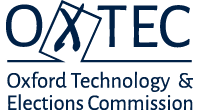Mission

Today’s voters navigate a complex and increasingly connected world. Yet the way many democracies approach the role of technology in elections falls short of addressing challenges that can undermine the integrity of political processes. From social media platforms to ballot systems, we have emphasised individual voter rights and responsibilities when it comes to participating in elections. But overwhelming evidence demands that we complement this focus with the development of secure election systems, fair campaign rules, and collective responsibility for information dissemination that are equally essential for citizens to learn, debate and decide.
our aims
- To build an alliance of stakeholders speaking with a unified voice about the urgency of securing the information infrastructure of elections;
- To provide a clear framework for understanding the technological mechanisms, algorithms and big data practices that undermine the mechanics of democracy in their ethical and legal context;
- To elevate promising practices and policies to protect the human right to privacy, as well as information access, and free and fair elections;
- To identify approaches to integrate data-intensive political campaigning with contemporary elections administration in a way that underscores democracy;
- To develop a roadmap for research, practice, and policy to create a trusted environment for the democratic use of technology.
acknowledgements
We gratefully acknowledge the support of the European Research Council, “Computational Propaganda: Investigating the Impact of Algorithms and Bots on Political Discourse in Europe,” Proposal 648311, 2015-2020, Philip N. Howard. For supporting our Oxford Technology & Elections Commission we are grateful to Microsoft and the Ford Foundation. Any opinions, findings, and conclusions or recommendations expressed in this material are those of the Commission and do not necessarily reflect the views of the University of Oxford or our funders.
